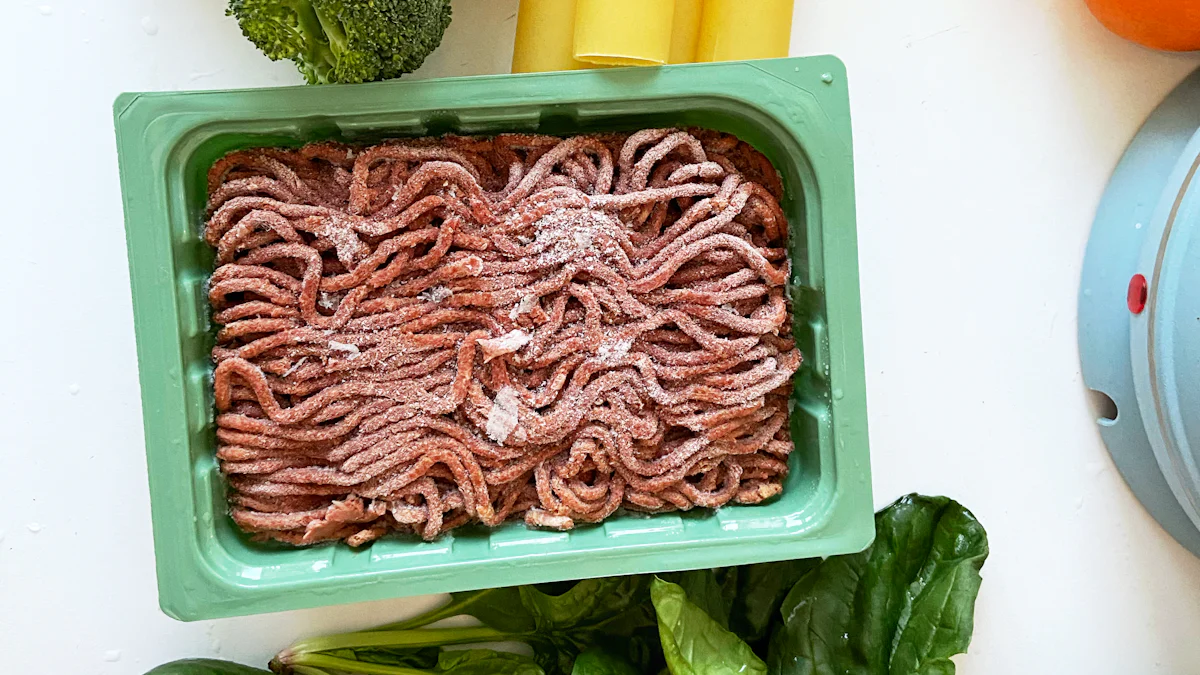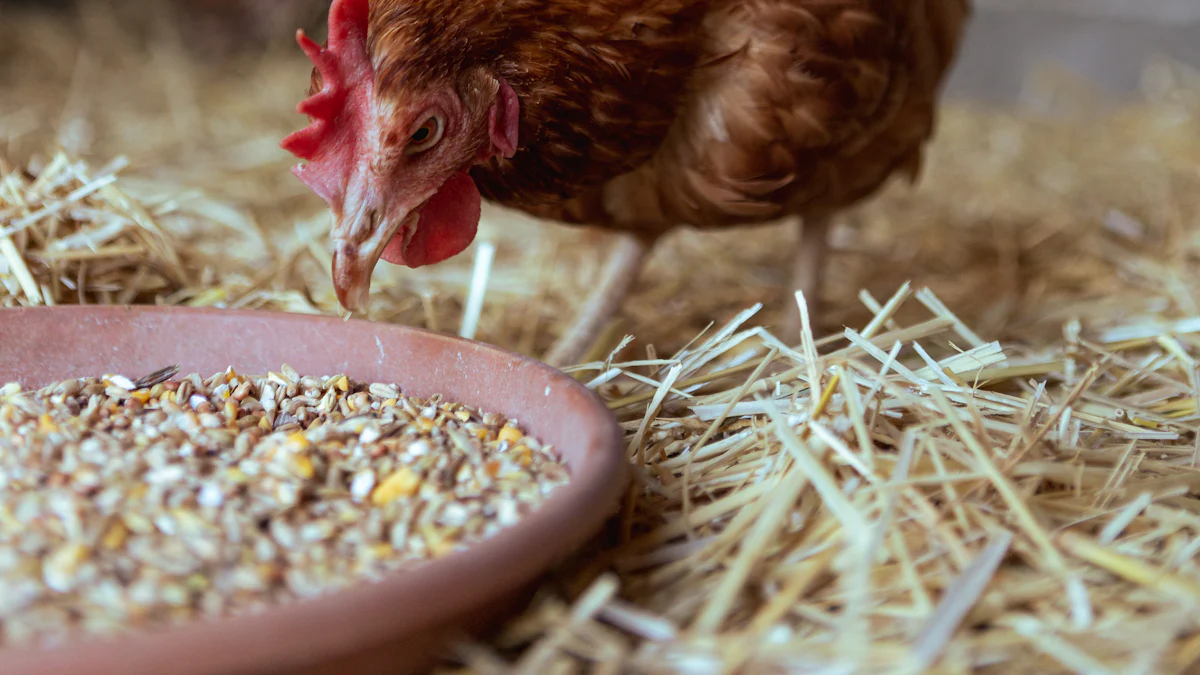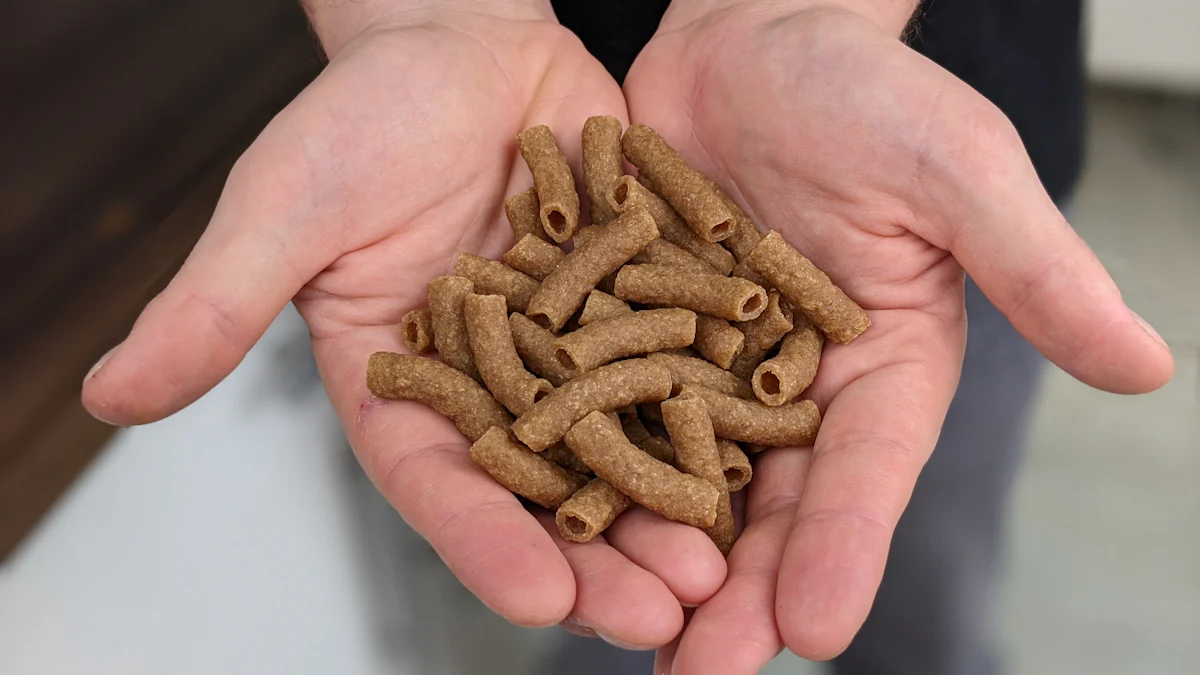
Calcium plays a vital role in keeping birds healthy. It strengthens their bones, supports muscle function, and ensures proper egg production. Without enough calcium, birds may face serious issues like weak bones, poor coordination, or even egg-binding in females.
Dried mealworms for birds offer a convenient, protein-packed treat. They provide energy for flying and digestion support. However, mealworms lack calcium, so adding a supplement is essential to balance their diet and keep birds thriving.
Key Takeaways
- Calcium is very important for birds. It helps their bones, muscles, and eggs stay healthy.
- Dried mealworms have lots of protein and fat but not much calcium. Add crushed eggshells or calcium powder to give them more calcium.
- Give dried mealworms in small amounts with other foods. This keeps birds healthy and avoids problems.
Why Calcium is Essential for Birds

Role of Calcium in Bird Health
Calcium is a cornerstone of bird health. It plays a key role in building strong bones and maintaining a sturdy skeletal structure. About 90% of a bird’s calcium is stored in its bones, which helps support over 400 critical body functions. Calcium also enables muscle movement and nerve activity, ensuring birds can fly, perch, and forage with ease. During breeding, calcium becomes even more important. It regulates hormones and supports the production of eggshells, which are made up of 97% calcium. Without enough calcium, birds may struggle with basic functions like muscle contractions or blood clotting.
Signs of Calcium Deficiency in Birds
Calcium deficiency can cause serious health problems in birds. Some common signs include lethargy, trembling, and poor coordination. Birds may also experience muscle pain or difficulty climbing and moving. In severe cases, they might develop rickets, a condition that weakens their bones. Egg-laying birds often show signs like soft or weak eggshells, which can lead to egg-laying difficulties. Other symptoms include seizures, feather plucking, and nervous behavior. Spotting these signs early can help bird enthusiasts take action to improve their diet.
Importance of Calcium During Nesting and Egg-Laying
Nesting and egg-laying are demanding periods for birds. Calcium becomes essential for forming strong eggshells and supporting muscle contractions during egg-laying. Without enough calcium, eggshells may become soft or weak, increasing the risk of cracking. This can harm the developing chicks inside. Birds also rely on calcium to prevent complications like egg-binding, a condition where they cannot pass an egg. Providing calcium-rich supplements, such as crushed eggshells or calcium powder, alongside dried mealworms for birds can help meet these nutritional needs.
Nutritional Profile of Dried Mealworms for Birds
Protein and Fat Content of Dried Mealworms
Dried mealworms are packed with nutrients that birds need to thrive. They contain an impressive 52.8% crude protein and 24.7% crude fat. These nutrients play a vital role in a bird’s health. Protein helps birds build strong muscles and feathers, which are essential for flying and staying protected from the elements. Fat provides a quick energy source, especially during colder months or migration. Additionally, dried mealworms contain 9% fiber, which supports digestion and keeps their systems running smoothly.
| Nutrient | Value |
|---|---|
| Crude Protein | 52.8% |
| Crude Fat | 24.7% |
| AD Fiber | 9.0% |
This combination of protein, fat, and fiber makes dried mealworms for birds a highly nutritious treat.
Calcium Deficiency in Mealworms
While dried mealworms are rich in protein and fat, they fall short in calcium. This deficiency can create an imbalance in a bird’s diet if mealworms are fed alone. Birds need calcium for strong bones, healthy eggshells, and proper muscle function. Without it, they may face issues like weak bones or egg-binding. To address this, bird enthusiasts can supplement dried mealworms with calcium-rich options like crushed eggshells or calcium powder. This ensures birds get the nutrients they need to stay healthy.
Benefits of Dried Mealworms for Birds
Dried mealworms offer several benefits for birds. They are lightweight, easy to store, and have a long shelf life, making them a convenient option for bird lovers. Their high protein content supports muscle growth and feather development, while the fat provides energy for activities like flying and nesting. Dried mealworms for birds are especially helpful during winter when natural food sources are scarce. They also attract a variety of bird species, turning any backyard into a lively birdwatching spot.
How to Supplement Calcium with Dried Mealworms

Adding Calcium Powder to Mealworms
Calcium powder is one of the easiest ways to boost the calcium content of dried mealworms for birds. Simply sprinkle a small amount of calcium powder over the mealworms before serving. The powder sticks to the mealworms, making it easy for birds to consume. This method works well for both wild birds and pet birds, especially during nesting or egg-laying seasons when calcium needs are higher. Look for calcium powders that are specifically designed for birds to ensure they are safe and free from harmful additives. Always follow the recommended dosage on the packaging to avoid over-supplementing.
Using Crushed Eggshells as a Calcium Source
Crushed eggshells are a natural and cost-effective way to add calcium to a bird’s diet. Preparing them is simple and can be done at home. Start by rinsing the eggshells to remove any residue. Then, roast them in an oven at 250°F for 10-20 minutes until they become brittle. Once cooled, crush the shells into fine pieces using a rolling pin, blender, or mortar and pestle. The pieces should be small enough for birds to eat safely. You can mix the crushed eggshells with dried mealworms or sprinkle them on the ground. Store any extra shells in a paper bag to keep them dry and fresh.
Tip: Always sterilize eggshells before using them to eliminate bacteria and ensure they are safe for birds.
Soaking Dried Mealworms for Hydration and Calcium Absorption
Soaking dried mealworms can serve two purposes: hydration and calcium supplementation. When soaked, mealworms become softer, making them easier for birds to eat. To add calcium, dissolve a small amount of calcium powder in water before soaking the mealworms. This allows the mealworms to absorb the calcium, providing an extra boost of nutrition. Soaked mealworms are especially beneficial during hot weather or for birds that need additional hydration.
| Benefit Type | Description |
|---|---|
| Soaking Dried Mealworms | Softens the mealworms and improves hydration. |
Offer soaked mealworms immediately after preparation to prevent spoilage. This method is a great way to combine hydration and calcium in one simple step.
Feeding Tips and Safety Considerations
Best Practices for Feeding Dried Mealworms
Feeding dried mealworms to birds can be rewarding, but it’s important to follow a few best practices. Offering mealworms in moderation prevents nutritional imbalances. Birds need a variety of nutrients, so combining mealworms with seeds, nuts, and fruits creates a balanced diet. For portion control, adjust the amount based on the bird’s size. Small birds should get 1 to 2 teaspoons daily, medium birds 2 to 3 teaspoons, and large birds 3 to 5 teaspoons. During spring, when birds need extra protein for nesting, slightly increase the feeding frequency. If birds seem hesitant, moistening the mealworms can make them more appealing.
Choosing the Right Feeder for Mealworms
The right feeder ensures dried mealworms stay fresh and accessible. A platform or tray feeder with sides at least an inch tall works well to prevent mealworms from spilling. For rainy conditions, feeders with roofs or drainage holes keep the mealworms dry and fresh. Some feeders also include tamper-resistant features to protect the food from other animals. These designs make feeding easier and safer for birds while reducing waste.
Moderation and Avoiding Overfeeding
Overfeeding dried mealworms can lead to health issues for birds. They may miss out on other essential nutrients if mealworms dominate their diet. To avoid this, always serve mealworms in small portions and mix them with other foods. Specialized feeders help control portions and keep the food fresh. While dried mealworms for birds are a nutritious treat, they should complement a varied diet rather than replace it.
Creating a Safe Feeding Environment for Birds
A safe feeding environment encourages birds to visit and protects their health. Choose a feeder with tall sides and a roof to keep mealworms contained and dry. Soaking dried mealworms in water for 20-30 minutes before feeding can improve hydration and make them easier to eat. Place feeders in a quiet, shaded area to reduce stress for the birds. Regularly clean the feeder to prevent bacteria buildup and ensure the food remains safe.
Calcium is essential for birds to maintain strong bones, healthy eggshells, and proper muscle function. Dried mealworms for birds provide a rich source of protein and fat but lack calcium. Adding supplements like calcium powder or crushed eggshells ensures a balanced diet. Proper feeding practices not only support bird health but also contribute to conservation efforts. By offering nutritious and safe food, bird enthusiasts can create thriving habitats for their feathered visitors.
FAQ
How often should dried mealworms be fed to birds?
Birds should eat dried mealworms 2-3 times weekly. Adjust portions based on bird size and season, especially during nesting or winter.
Can dried mealworms replace a bird’s regular diet?
No, dried mealworms should complement a bird’s diet. Combine them with seeds, fruits, and nuts for balanced nutrition.
Are dried mealworms safe for all bird species?
Yes, dried mealworms are safe for most birds. Ensure they meet FDA standards and come with a veterinary health certificate, like those from DpatQueen.
Tip: Always store mealworms in a cool, dry place to maintain freshness and quality.


